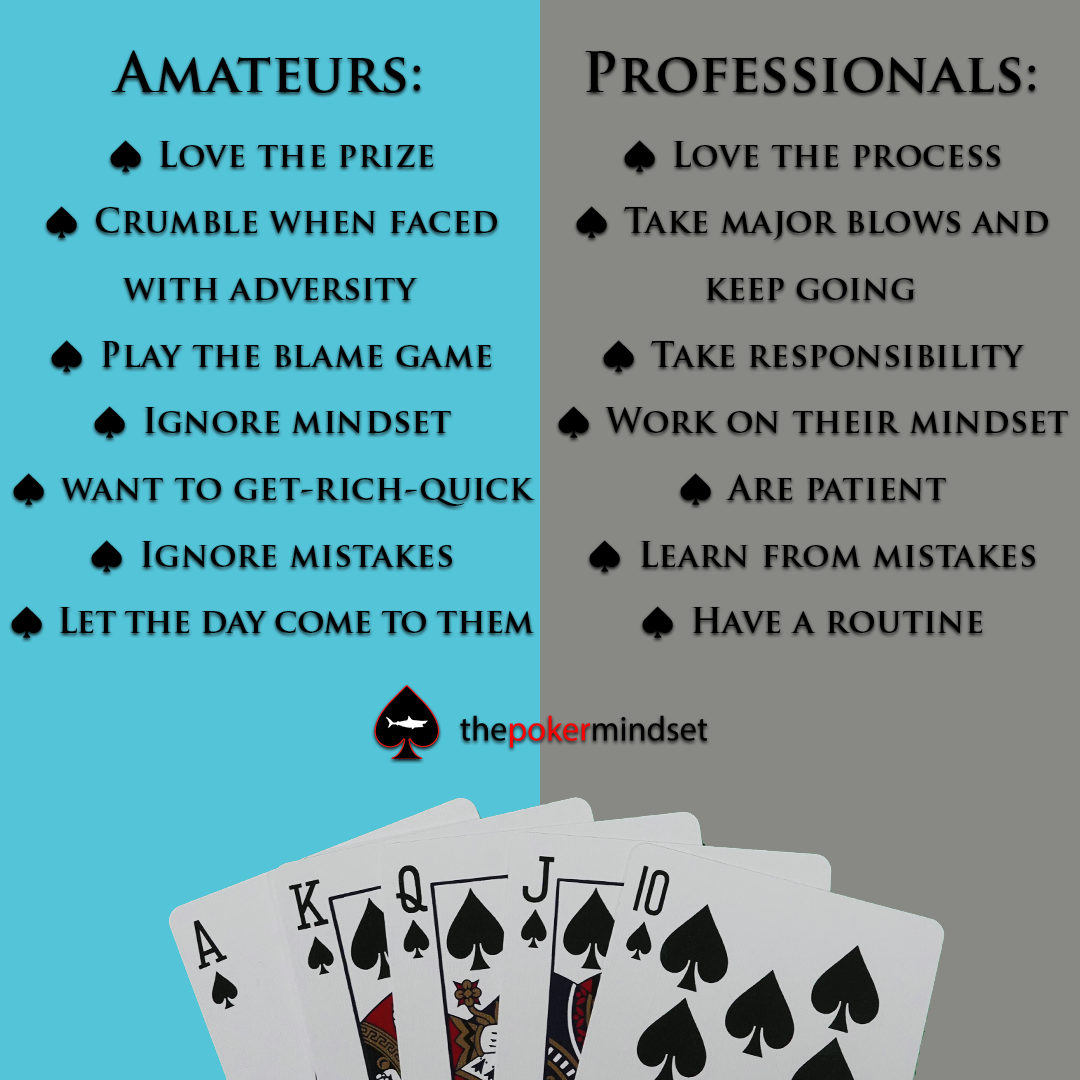Usually new players underestimate the work and time required in order to become a professional poker player. Pros devote an extensive amount of time to the game, learning skills that far exceed anything an amateur can imagine. With these skills, a pro is always in an advantageous position, and as a result he usually takes home more money than everyone else.
The good news is that if you have perseverance, passion and you are willing to work hard then becoming a professional poker player can be a reality for you.
Here are some key differences between the mindsets of amateur and professional players. Enjoy!
1. Amateurs love the prize – Professionals love the process
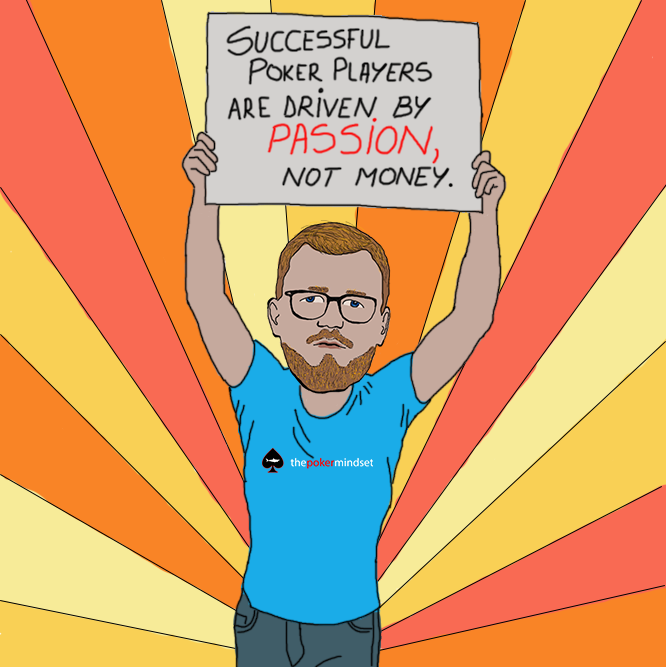
If a peak’s view alone is the only thing motivating you then you’re not going to make it. The journey to the summit needs to be just as exciting as the reward at the end. Professionals are passionate about the process.
In order to become a great poker player you have to detach yourself from money. You must realize that you thrive on the process, not on the result. Result oriented thinking means expectations, which means you’re more likely to be upset, which in the end can lead to mistakes. Fall in love with the process! This is one of the hardest things to master, especially when real money is on the line. Yet it’s key.
2. Amateurs crumble when faced with adversity – Professionals take major blows and keep going
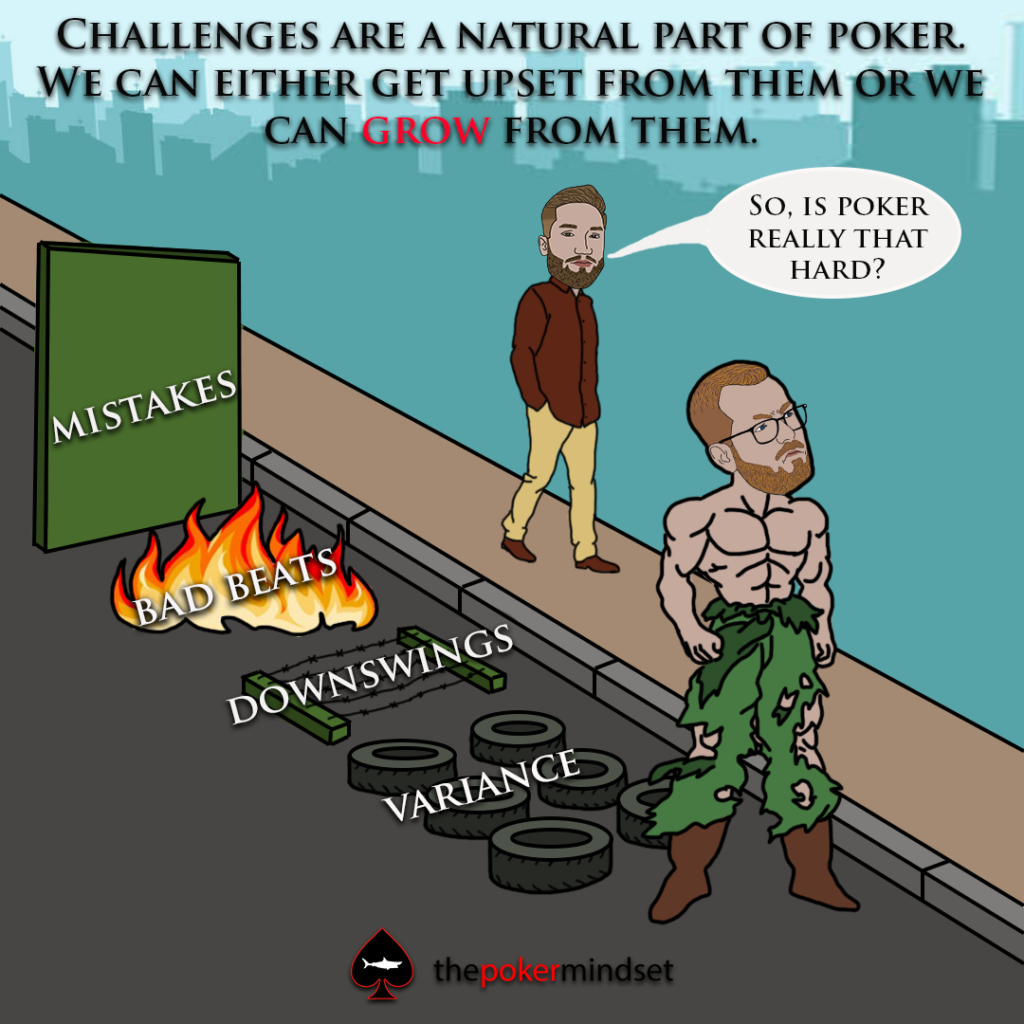
So many people want the positive rewards of being a successful poker player without willing to go through the commitment and pain. And there’s a lot of pain.
I can’t say this enough: Losing, downswings, failures, mistakes are a natural part of poker. Until you accept this reality, you will never be the professional player you dream about becoming.
Every human being has this natural instinct to protect himself or herself from pain, to lash out in frustration, or to curl up in a ball. It’s time for you to take a different approach.
When pain shows itself, welcome it, and make a vow to let it go and embrace it with gratitude and perhaps a smile.
As the German philosopher Nietzsche said:
“To those human beings who are of any concern to me I wish suffering, desolation, sickness, ill-treatment, indignities — I wish that they should not remain unfamiliar with profound self-contempt, the torture of self-mistrust, the wretchedness of the vanquished: I have no pity for them, because I wish them the only thing that can prove today whether one is worth anything or not — that one endures.”
Friedrich Nietzsche
In Nietzsche’s view, difficulty (pain) and joy were linked and that if you diminished one, you would also diminish the other. As a result, he routinely encouraged everyone to face hardships and pain because there is no way to master the ingredients of fulfillment otherwise.
According to Nietzsche, the belief that fulfillment must come easily causes us to back off from challenges that may have been overcome if we had seen pain as mandatory for almost everything worthwhile.
In addition to denying ourselves challenges that will improve our intellect, emotions, or physical abilities, we also lose the chance to discover what we are made of, to learn how to deal with life’s inevitable challenges, to become tough.
Or, to put it another way, we stagnate.
All in all, I’m not suggesting you to bounce for joy the next time you have a losing session. What I’m trying to say is that during these times of vulnerability as long as you remember that pain is there just to help you grow, you will find much more strength, wisdom, perspective, and gratitude than you might think.
3. Amateurs play the blame game – Professionals take responsibility
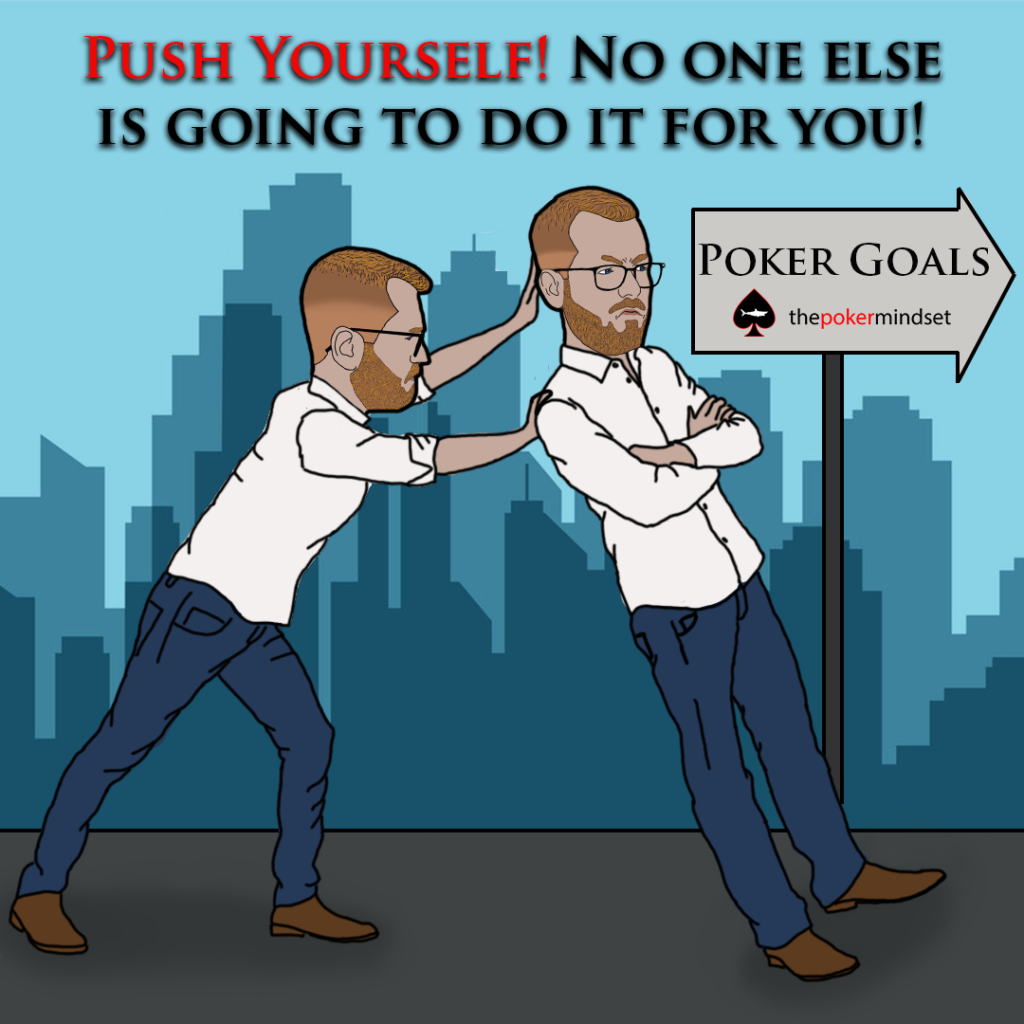
When facing failure, an amateur looks outward and blames it on bad luck, unfair circumstances, the dealer, the poker platform, etc. The professional takes responsibility and looks inward – lack of preparation, a gap in routine, uneven intensity, etc.
Accountability breeds progress! The sooner you take full responsibility for your outcomes the better.
Nobody else is going to push you to achieve your poker goals, manage your time, and hold you accountable. Take responsibility for yourself and understand that nothing is owed to you and nothing will be handed to you. Your poker success is 100% up to you!
4. Amateurs ignore mindset – Professionals work on their mindset
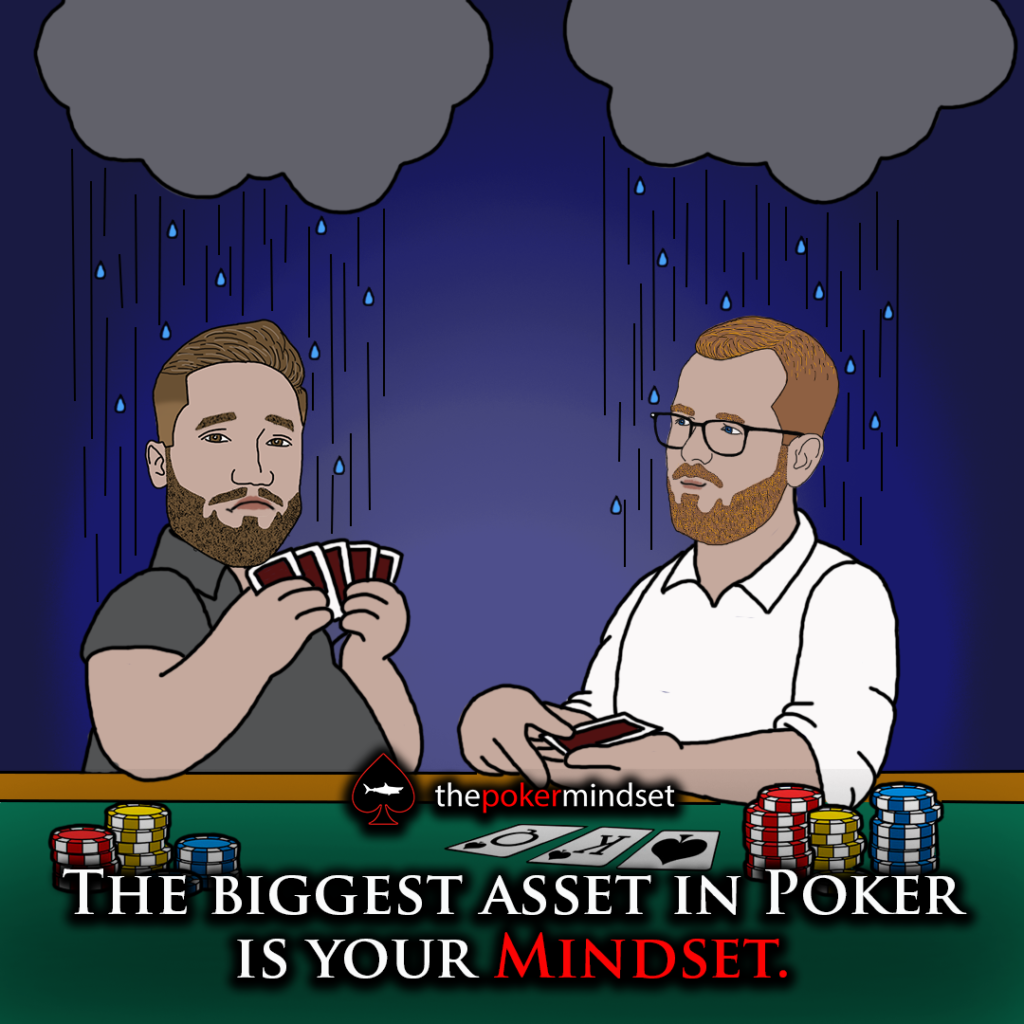
A poor mindset is the most expensive thing a poker player can own. To become a great poker player you need a good strategy, that’s pretty obvious. What’s not-so obvious is that you also need a good poker mindset. If your mind isn’t right you cannot play poker effectively.
Do you need a quick mindset boost? Click here to check out our eBook, 25 Poker Mindset Tips Every Player Should Know!

5. Amateurs want to get-rich-quick – Professionals are patient
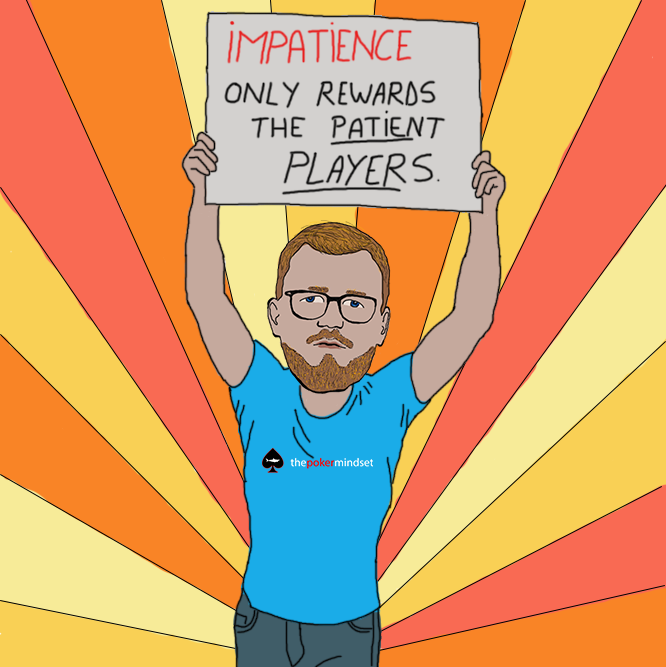
Amateur players are patient with actions and impatient with results. Professional players are impatient with actions and patient with results.
Professionals play long-term games, often delaying gratification, but simultaneously understanding that long-term victories are won through smaller daily actions.
To become a great poker player let go of the get-rich-quick mentality. Be patient, put in the work, and see what happens…
6. Amateurs ignore mistakes – Professionals learn from mistakes
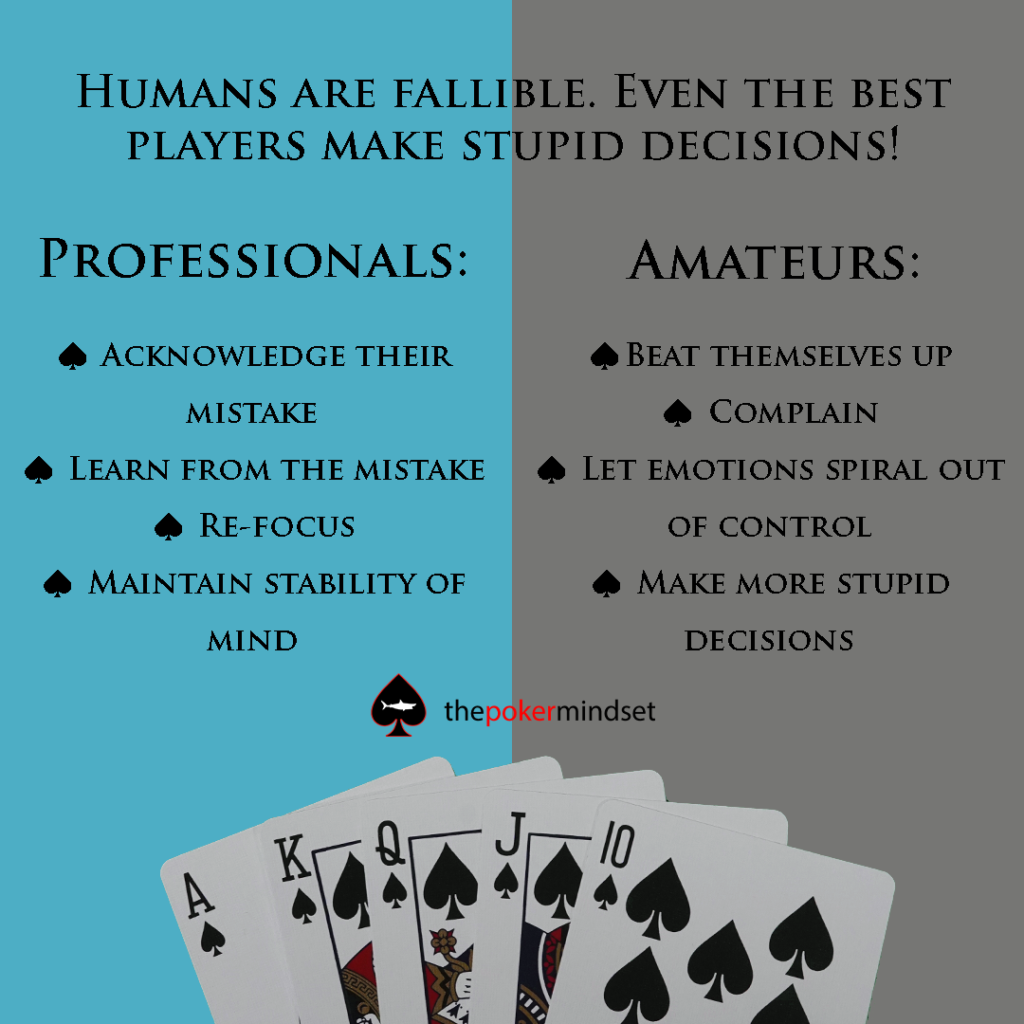
Professional players learn from their mistakes and constantly strive to improve their poker strategies. They regularly go through hand histories, analyze their own plays and try to identify and fix some of the leaks.
Learn from your mistakes instead of ignoring them. Create a culture where failing is acceptable, but not identifying, not analyzing, and not learning from mistakes is unacceptable. Understand that mistakes are inevitable and you will always have weaknesses. What matters is how you approach them. If you look at mistakes as opportunities for improvement, you will be excited by them. If you don’t mind being wrong on the road to being right, you will improve a lot.
7. Amateurs let the day come to them – Professionals have a routine
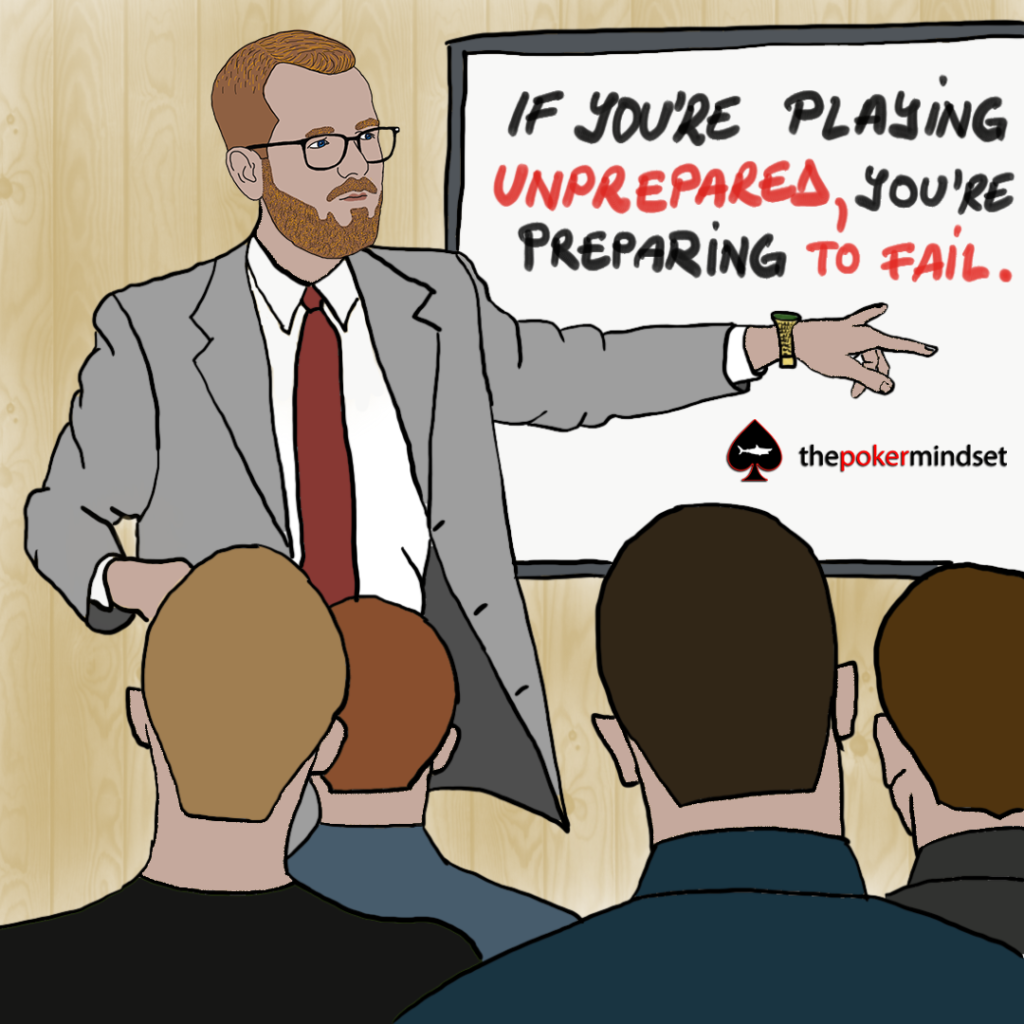
All the best performers in any field have one thing in common: They have a routine and they follow it. Greatness is simply a collection of small, everyday achievements done well, over and over again.
I recommend having a morning routine and a pre-session routine as well.
The purpose of a good morning routine is to set you up for a successful poker day – both mentally and physically. An amateur poker player’s morning is filled with chaos, procrastination, wasted time on social media and Internet, and preparation is done in the last minute. The antidote to this is “THE GOLDEN HOUR”.
Click here to read our article: The Golden Hour: Powerful Morning Routine For Poker Players!
The edges in poker are getting smaller and smaller, but there’s still a big advantage for those players who know how to consistently reach their mental peak. Having a good warm up routine helps you get in the zone and play your A-game. Professional players have good pre-session routines that help them approach their poker sessions with calm, confidence and awareness. Remember, if you’re playing unprepared, you are preparing to fail.
Click here to find out How The World Class Players Prepare For Poker Sessions!

